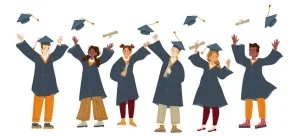What is Social Studies: Understanding the Importance, Benefits, and More

Social studies isn’t just about dusty history books and boring maps. Social studies education lets you learn why people act the way they do, how societies tick, and how we share resources and make decisions.
Often intertwined with social sciences, social studies encompasses a range of subjects, including geography, history, anthropology, economics, sociology, political science, and civics. Learning about economies, governments, and being good citizens is like building a map of the world, showing you your place and how you can make it a better place.
Importance of Social Studies for Children: Unveiling the Facts
The importance of social studies for children is immense. It serves as a gateway for young minds to understand and navigate the complexities of our diverse world. Under its umbrella, children explore subjects like geography, economics, political science, etc. Collectively, these subjects contribute to a well-rounded understanding of the society we live in and the various forces that shape it.
The primary aim of social studies for children is to finally cultivate informed, reasoned decision-makers who can contribute positively to a culturally diverse, democratic society. This subject encourages children to appreciate democratic values and understand their roles as active citizens in an interdependent world. Children learn to analyse information, ask questions, and form their own opinions. They explore different perspectives and develop the ability to think critically about complex issues.
Benefits of Social Studies Education: What Do You Gain?
If you ask why social study is important for children, the simplest answer is that social studies education is essential for succeeding in the 21st century.
Check out why students should be introduced to this subject compulsorily.
- Development of Critical Thinking: Social studies challenge students to think critically, encouraging them to analyze, evaluate, and synthesize information from multiple sources.
- Enhanced Cultural Awareness: Through the study of different cultures and histories, students develop a broader understanding and respect for diversity.
- Economic Understanding: Education in economics within social studies equips students with knowledge. This helps make informed financial decisions and understand the economic forces that shape societies.
- Political Literacy and Civic Responsibility: It helps students understand political systems and their role as active participants in a democracy.
- Interdisciplinary Learning: Social studies for children bring together various fields, offering a comprehensive learning experience that integrates different perspectives.
- Skill Building for the Future: Skills like research, analysis, problem-solving, and communication are central to social studies and are crucial for success in both higher education and the workforce.
- Moral and Ethical Reasoning: This field often involves discussions around morality and ethics, helping students develop a strong moral compass and ethical understanding.
How to Incorporate Social Education in Schools: A Detailed Guide
There are many exciting ways to incorporate social education into the school curriculum, making it engaging and relevant for students of all ages! Here are some ideas:
- Integrate with Current Events: Linking social studies lessons to current news and events to show relevance and foster engagement.
- Use of Technology and Multimedia: Incorporating digital resources, educational software, and multimedia tools to make learning more interactive and relatable.
- Project-Based Learning: Implementing projects that require students to research, collaborate, and present on various social studies topics.
- Field Trips and Experiential Learning: Organising field trips to historical sites, government institutions, or cultural events, offering hands-on learning experiences.
- Interdisciplinary Approach: Combining social studies with other subjects such as language arts, science, and math to create a more integrated and comprehensive learning experience.
- Collaborative Learning: Encouraging group work and discussions, allowing students to learn from each other and understand different perspectives.
- Incorporate Diverse Perspectives: Ensuring that the curriculum includes diverse viewpoints and narratives, reflecting the pluralistic nature of society.
How to Encourage Students to Take Up Social Studies: The Big Task
Teachers should remember that the aim is to make social studies an adventure, not a chore. Students can not be forced anyhow.
Here are some ways that can be applied in encouraging students to take up social studies:
- Show relevance. Demonstrate how social studies topics are relevant to students’ lives and future careers, making the subject matter more engaging.
- Implement interactive teaching methods like debates, discussions, and group projects to make lessons more engaging and dynamic.
- Tailor lessons to students’ interests and backgrounds to increase personal connection and engagement with the material.
- Encourage critical questions. Foster an environment where questioning and critical thinking are encouraged, making classes more engaging and thought-provoking.
- Leverage technological tools and online resources to make learning more accessible and appealing to tech-savvy students.
- Encourage participation in social studies-related clubs, competitions, and events to extend learning beyond the classroom.
- Showcase the wide range of career opportunities that a background in social studies can lead to.
Social studies is an indispensable part of education, and schools play a crucial role in integrating social studies into their curriculum and making it a compelling subject for students. The benefits of social studies education are vast and varied, extending far beyond the classroom. The subject helps students become well-prepared to face the challenges of the future and actively participate in shaping a better world.
At Billabong International High School, our curriculum is designed to not only provide knowledge but also to ignite a passion for learning about the world and our place in it. We invite students and parents to explore our dynamic social studies program and join us in nurturing the next generation of informed, responsible, and compassionate global citizens.













